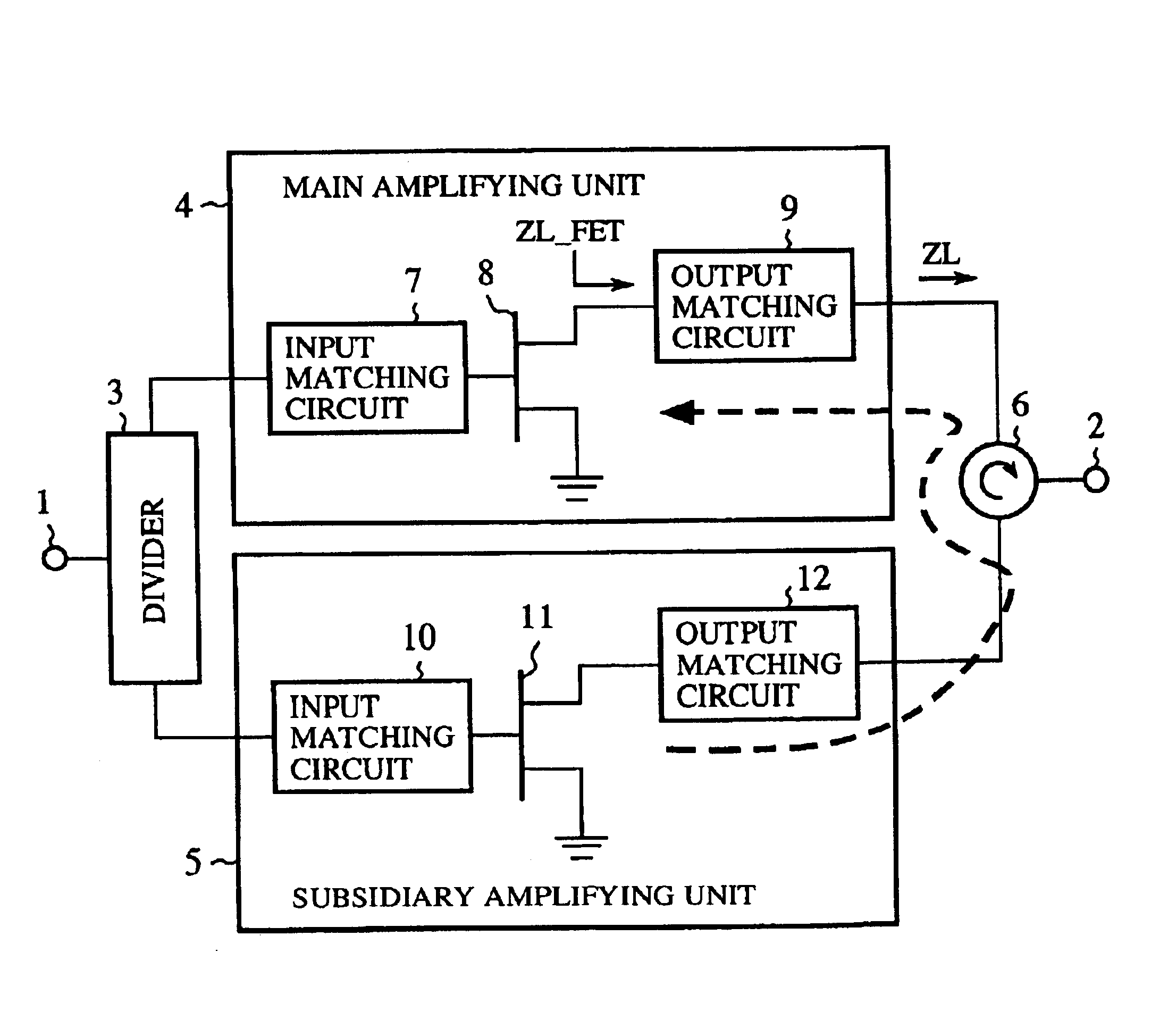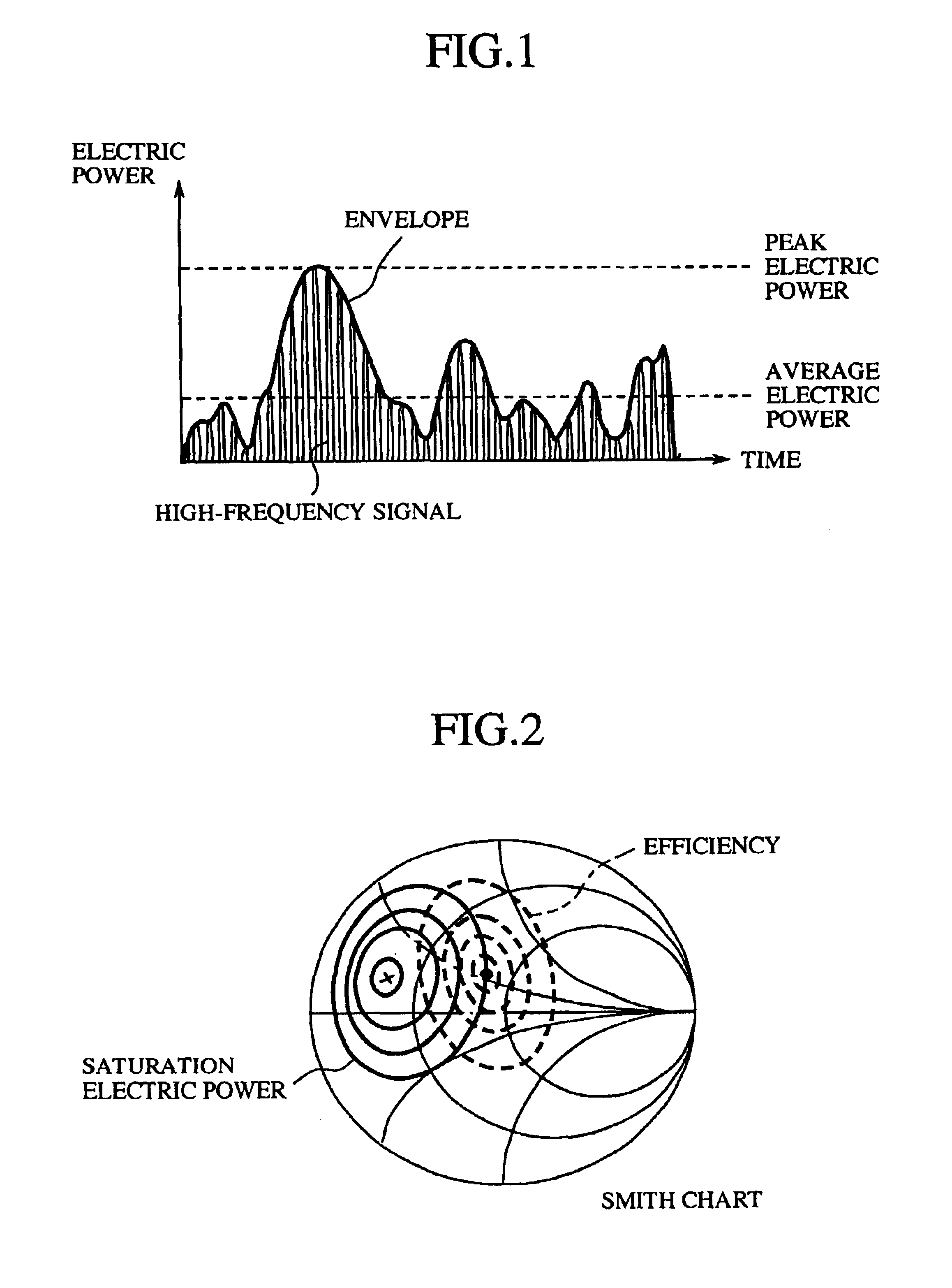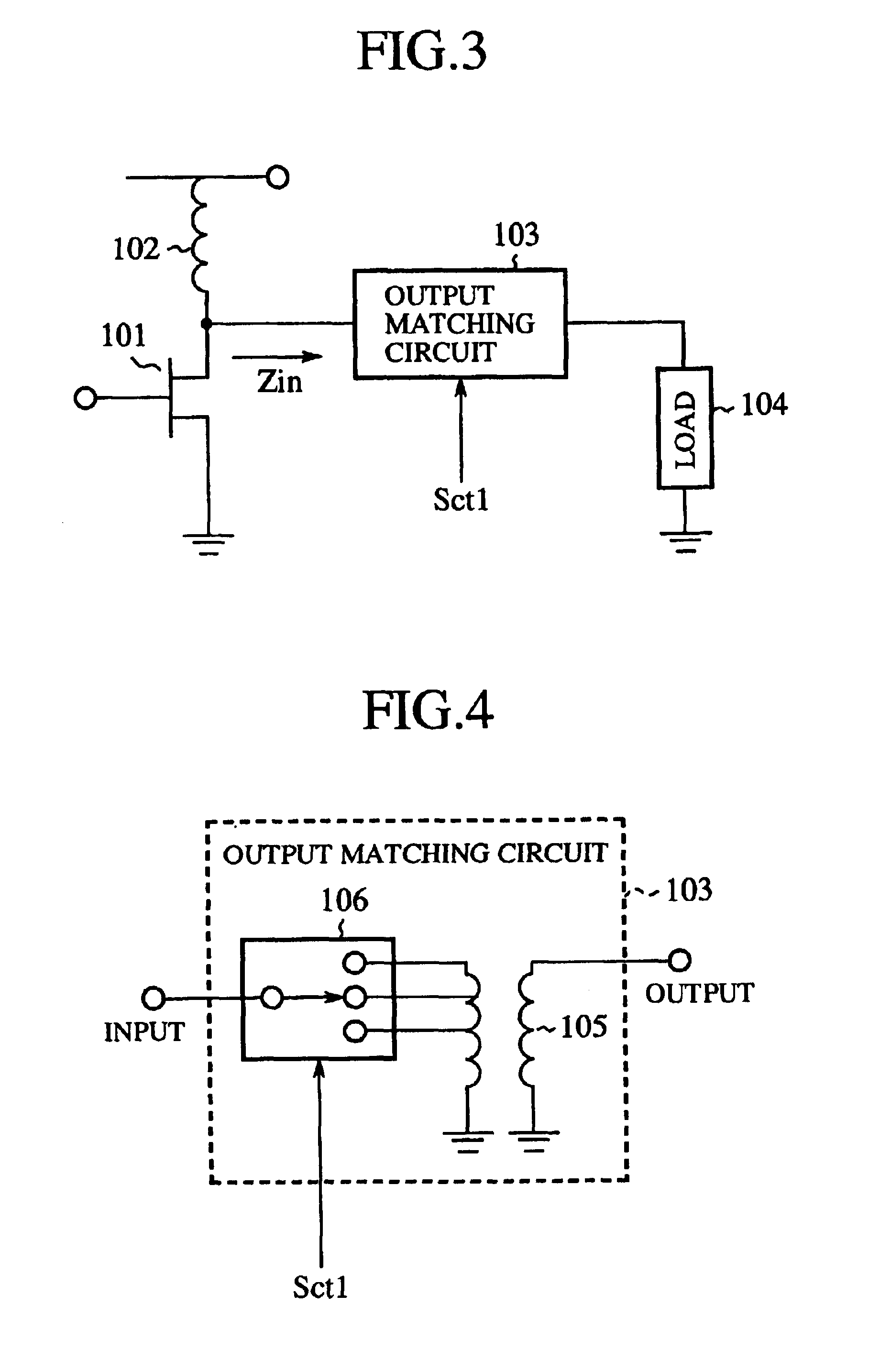High-frequency amplifier, feed-forward amplifier and distortion compensating amplifier
- Summary
- Abstract
- Description
- Claims
- Application Information
AI Technical Summary
Benefits of technology
Problems solved by technology
Method used
Image
Examples
embodiment 1
[0088]FIG. 5 is a view showing the configuration of a high-frequency amplifier according to a first embodiment of the present invention.
[0089]In FIG. 5, 1 indicates an input terminal to which a high-frequency signal is input. 2 indicates an output terminal from which the high-frequency signal is output. 3 indicates a divider (or first distributing means) in which the high-frequency signal input to the input terminal 1 is divided and distributed to two lines of two output sides. 4 indicates a main amplifying unit (or main amplifying means) connected to one output side of the divider 3. 5 indicates a subsidiary amplifying unit (or subsidiary amplifying means) connected to the other output side of the divider 3. 6 indicates a circulator. The circulator 6 is arranged so as to inject the high-frequency signal output from the subsidiary amplifying unit 5 into the output side of the main amplifying unit 4 and to inject the high-frequency signal output from the main amplifying unit 4 into t...
embodiment 2
[0113]FIG. 7 is a view showing the configuration of a high-frequency amplifier according to a second embodiment of the present invention. The constituent elements, which are the same as those shown in FIG. 5, are indicated by the same reference numerals as those of the constituent elements shown in FIG. 5.
[0114]In FIG. 7, 13 indicates a 90-degree hybrid (or second distributing means) in which two high-frequency signals having a phase difference of 90 degrees from each other are produced from the high-frequency signal of one line output from the divider 3 and are distributed to two lines respectively. 14A and 14B indicate two amplifying units (or first main amplifying means and second main amplifying means) in which the two high-frequency signals output from the 90-degree hybrid 13 are respectively amplified. 15 indicates a 90-degree hybrid (or a first 90-degree hybrid). In the 90-degree hybrid 15, the amplified high-frequency signal output from the subsidiary amplifying unit 5 is di...
embodiment 3
[0124]FIG. 8 is a view showing the configuration of a high-frequency amplifier according to a third embodiment of the present invention. The constituent elements, which are the same as those shown in FIG. 5, are indicated by the same reference numerals as those of the constituent elements shown in FIG. 5.
[0125]In FIG. 8, 16 indicates a variable attenuation unit (or first amplitude and phase adjusting means) in which an amplitude of the high-frequency signal passing the subsidiary amplifying unit 5 is adjusted. 17 indicates a variable phase shift unit (or first amplitude and phase adjusting means) in which a phase of the high-frequency signal passing the subsidiary amplifying unit 5 is adjusted. In the third embodiment, the variable attenuation unit 16 and the variable phase shift unit 17 are arranged between the subsidiary amplifying unit 5 and the circulator 6, and both an amplitude and a phase of the high-frequency signal output from the subsidiary amplifying unit 5 are adjusted.
[...
PUM
 Login to View More
Login to View More Abstract
Description
Claims
Application Information
 Login to View More
Login to View More - R&D
- Intellectual Property
- Life Sciences
- Materials
- Tech Scout
- Unparalleled Data Quality
- Higher Quality Content
- 60% Fewer Hallucinations
Browse by: Latest US Patents, China's latest patents, Technical Efficacy Thesaurus, Application Domain, Technology Topic, Popular Technical Reports.
© 2025 PatSnap. All rights reserved.Legal|Privacy policy|Modern Slavery Act Transparency Statement|Sitemap|About US| Contact US: help@patsnap.com



